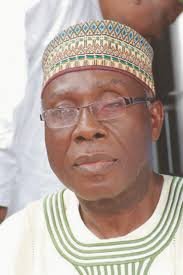State governors or political parties that failed to pay workers’ salaries might be in for the shocker of their political life if what is issuing from the Nigeria Labour Congress, (NLC), is anything to go by. Declaring its readiness to go for tests of strength with the government in 2018 in New Year message, Comrade Ayuba Wabba, the Congress President said that as workers approach the 2019 general elections, they “will certainly not forget governors or political parties that subjected them to untold hardship by refusal to pay their earned entitlements on the excuse of scarcity of resources while choosing to pay themselves, their political appointees and cronies huge packages”. In the view of the Congress leader, it is regrettable that arrears of salaries and pensions in many states of the federation remain unpaid despite the huge receipts he said states got via the Federal Government intervention funds to clear these areas. He particularly mentioned states such as Kogi, Osun, Benue, Ekiti, Bayelsa and several others as entered 2018 with huge arrears spanning up to ten (10) or more months of wages and pensions.
Similarly articulating running out of patience with the Buhari administration in the message titled “We Shall Hold Government Accountable in the New Year”, Comrade Wabba says the hope placed on the capacity of President Buhari to bring about positive change is being undermined by his government’s inability to address the infrastructural deficit in the oil industry such as making our existing refineries work to refine products for domestic consumption. Not only has the government been unable to achieve this for almost three years now according to the labour leader, it has also built no new infrastructure in the oil industry to address the challenge.
“As we approach 2019, one of the cardinal parameters by which workers, and indeed Nigerians, will assess the effectiveness or otherwise of this administration is how it will revamp the oil industry, which is the mainstay of our economy, to produce all our domestic petroleum products needs internally without resorting to importation”, Comrade Ayuba said.

Singled out for mention is the Kaduna State governor, Nasir el-Rufai for sacking workers
Congress is also blaming the APC government for allowing leading elements in the party such as Governor Nasir el-Rufai of Kaduna State to take measures it says could ruin Nigeria instead of creating jobs and improving the condition of Nigerian working people and Nigerians in general.
Although the statement congratulated Nigerian working people for their resilience in surviving and pulling through the Year 2017 which it says has been the most difficult for most Nigerians in recent history, it said its hopes that the year would offer succour for the masses of the people had gone badly.
In labour’s view, how deplorable the economic situation in the outgone year is has been aptly captured by the statistics from the National Bureau of Statistics (NBS) which put job loses in the year at over 4 million. This, it says, has ruined the campaign promise of the ruling All Progressives Congress (APC) government to create three million jobs annually as well as underscores the grave and depressing situation of the Nigerian economic landscape in 2017.
While noting what it calls the positive sides of 2017 and listing such to include statistical exit from recession; the anti-corruption war, tremendous progress in agricultural yields and efforts to implement the macro-economic recovery programme, it noted too the continuing challenge of the Boko Haram insurgency; herdsmen/peasant farmers’ clashes; the energy situation, despite the slight improvements in recent times, pointing out how considerable obstacles these are to the wellbeing of millions of Nigerian consumers, industrialists, small and medium scale business operators alike.
Isolating the crisis in the oil industry, labour says it is squarely due to the inability or refusal of our ruling elite to refine petroleum products domestically, making Nigeria “the only major producer of crude oil in the world that depends on importation of refined products”. It argues that Nigeria and Nigerians would remain hostage to intermittent scarcity as long as this remains the case, pointing out how it had explicitly said so in its 188-page Report of the NLC Committee on Deregulation it said was a product of consultations with key stakeholders in Nigeria. the message listed the stakeholders to include the Governors Forum (then under the chairmanship of Dr. Bukola Saraki as Governor of Kwara State and now the current Senate President), NNPC, Ministry of Finance, Major Markers Association of Nigeria (MOMAN) and CSOs, among others.
Expressing optimism that the inauguration of the Tripartite National Minimum Wage Negotiating Committee by President Buhari would mean an expeditious emergence of an executive bill therefrom, it is expecting the National Assembly to give such bill accelerated passage for the new national minimum wage to become a reality before the end of the 3rdquarter of 2018. This, it says, is because “a new national minimum wage has been due for over a year now”.




























